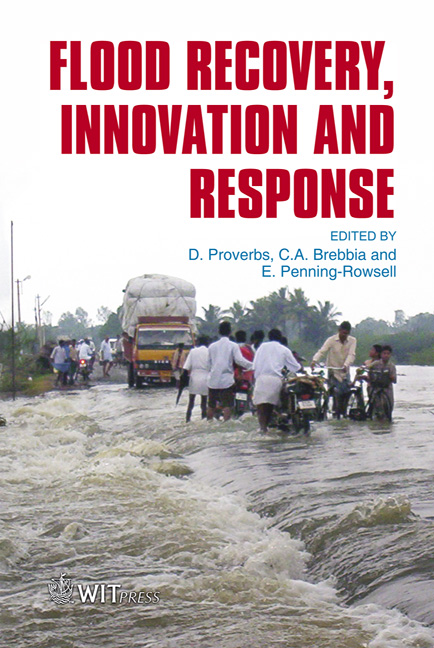Flood Management In The Low Lands: From Probability To Risk
Price
Free (open access)
Transaction
Volume
118
Pages
11
Page Range
69 - 79
Published
2008
Size
298 kb
Paper DOI
10.2495/FRIAR080071
Copyright
WIT Press
Author(s)
B. Broekhans & A. F. Correljé
Abstract
In deltas, populations always face flooding risks. Confronted with the high levels of rivers in the nineties, policy makers and scientists became involved in critical debates about the required level of security and possible solutions to achieve this. Reacting to such challenges, the Dutch government is reformulating its steering philosophy from ‘taking care of flood prevention’, to ‘making sure that the Netherlands should be safe enough against flooding’. The new philosophy involves a transformation of the traditional approach, based on controlling the probability of flooding events, towards a risk based approach, taking into consideration the values protected. The aim is to smoothen the policy process, while downsizing the role of central government, enhancing the role of the citizens and other public and private parties. The Dutch Ministry of Transport and Water Management recently decided to examine the institutional implications of this new approach for the political and governmental power relations in water management and flood prevention. This paper considers the potential impact on these arrangements of aspects like the perception of vulnerability and risk, public awareness and involvement, culture, in the context of reshuffled responsibilities and power relations. Keywords: water management, flood protection, institutional framework, risk approach, perceptions, public values, the Netherlands. 1 Introduction: from government to governance? In deltas, populations always face flooding risks. For centuries, in the Netherlands, risk management was primarily based on dike enhancement, taming the rivers between ever higher dikes and keeping the sea out. Confronted with
Keywords
water management, flood protection, institutional framework, risk approach, perceptions, public values, the Netherlands.





